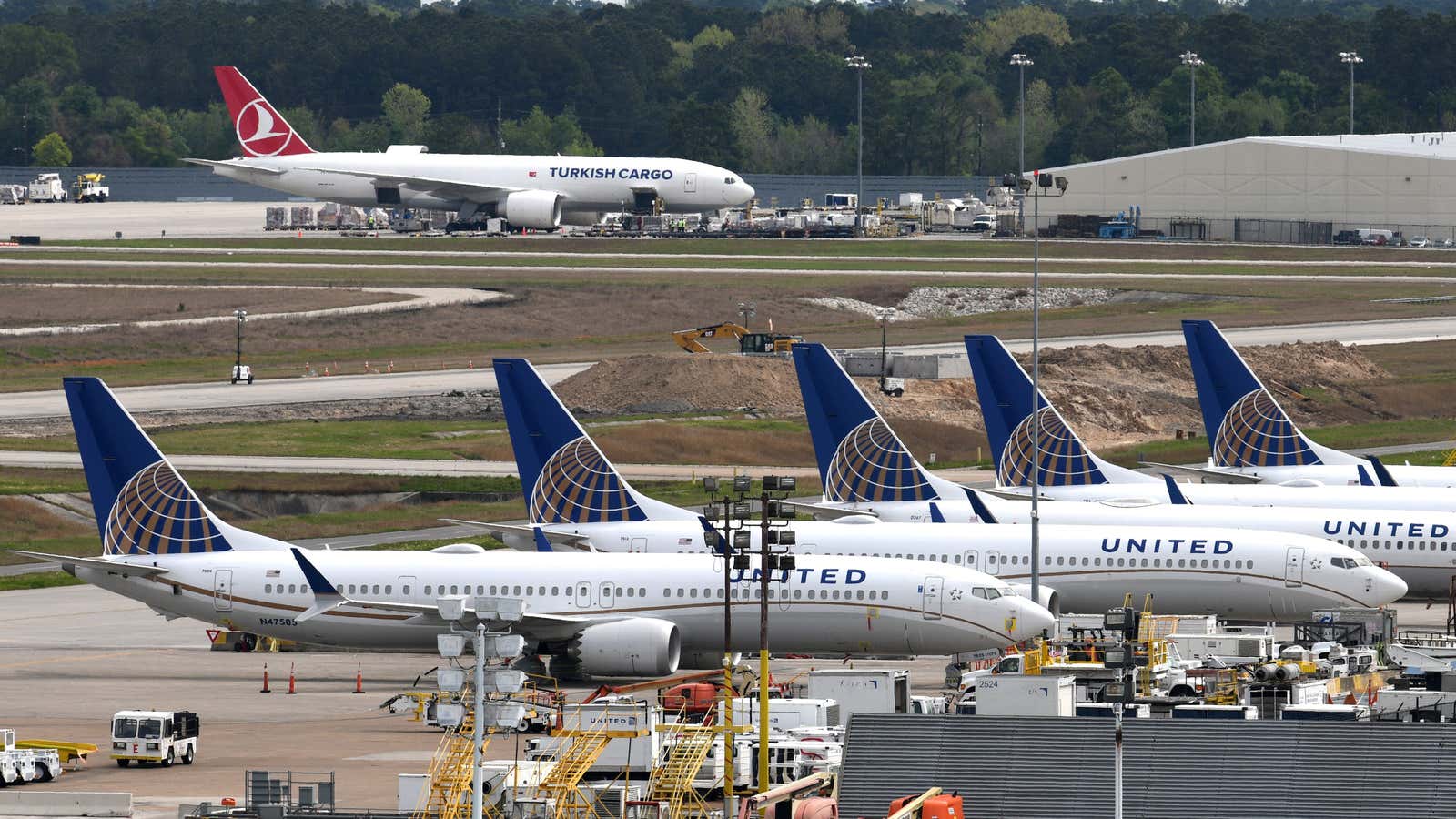Two months ago, United Airlines was in a bit of a pickle. The US carrier, which was forced to cancel dozens of daily flights in the wake of the Boeing 737 Max crisis, was looking ahead to months of variously swapping out planes, cancelling flights, or finding larger aircraft to work around the shortage of planes.
Today, with the new coronavirus wreaking havoc on the world’s travel plans, the landscape is very different: Consumer demand for travel has plummeted. United has therefore announced plans to cut domestic flights by 10% in April, and international capacity by 20%, with the cuts potentially in place through May. Other US carriers are likely to follow suit.
Before the crisis, says Seth Kaplan, an aviation analyst at Kaplan Research, “many airlines were missing airplanes, relative to what they expected to have, and they weren’t able to fly the schedules they expected to.” Some leased aircrafts; others made do with their less efficient models. With summer on the horizon—peak season for travel—many carriers had already anticipated being squeezed or having to cancel flights.
Now, he says, the opposite is true. “Airlines are finding themselves with too many airplanes, relative to consumer demand.”
No airline would have chosen what happened with the Max, of course, both in terms of the tragedies themselves and the extremely expensive grounding that has followed. But given the reduction in consumer demand, some carriers may see the situation as a silver lining—albeit a slim one. “If you’re United, it’s not such a bad thing that the Maxes haven’t yet been delivered,” says Kaplan. “It’s kind of a blessing in disguise not to be paying for those additional five, 10, 20, 30 airplanes, depending on the airline.” In addition to its 14 grounded Maxes, United had more than 100 on order.
More generally, the 1,000 or so planes missing from the world’s skies have left the industry smaller than it would have been. Having big expensive aircrafts just sitting around can be hugely costly for airlines, who are under pressure to use these valuable assets as much as they can to make them pay their way.
But no one knows how long this state of affairs will remain the case. “It’s all still very messy,” says Kaplan. And though airlines don’t need as many airplanes today, the situation may be totally different in just a few short months. Either way, for the first time in a while, Boeing isn’t the greatest problem plaguing the industry.
